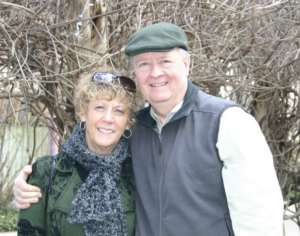When it is all over, then what?
The study of that question is called eschatology, which is the study of the end of time and also — ironically — the study of something no one has ever experienced. How does one study something about which one can prove almost nothing?
For all its abstraction, eschatology is important to those who follow Jesus because it turns out that what we think about the future and especially about the end determines how we live now. In other words, a study of the end times is really a two-part study: what we believe about “the end” shapes our understanding of God and his long-term plan, which in turn shapes how we live out our faith today.
today.
What, then, is a reasonable approach for a Wesleyan to this question of the end?
While some traditions within the Christian camp place a great deal of emphasis on what happens when we die, Wesleyans place more emphasis on how we ought to be living now. That doesn’t mean we don’t care about the end of time. It just means we don’t see that discussion as central to our understanding of salvation; nor do we believe it is the most productive way to spend our time while we wait.
As a good Methodist, my most honest answer to the question of when the end will come or what it will look like is, “I don’t know.” Don’t confuse that answer with a lack of concern. I care. I absolutely care. One of my most active prayers is, “Come, Lord Jesus!” I anticipate his second coming with great spiritual hunger. I love that he taught us to pray for the coming Kingdom. It means he is serious about it. I just don’t see an infatuation with pinning all the details down as useful to the daily working out of my faith.
That said, there are a few things relative to the second coming of Christ in which I place great faith:
I believe God is redeeming the earth. As someone has said, “The world is not the problem; the world is the prize.” The world is the crowning creation of a good and perfect God. The story in Genesis reminds us that what he made was good. It doesn’t seem to me as if He intends to blast it to smithereens. It seems more likely that he is slowly restoring this world back to its created order, in which case we will not go to meet Jesus. Jesus will come to meet us.
Jesus will return to earth. Rather than some kind of mystical absorption of people into Heaven, there will be a bold return of Christ to this world for the work of final, full redemption. That picture fits with passages that talk about Jesus coming on the clouds and with those that talk about a new heaven and a new earth. Scholars like Ben Witherington and John Stott would agree with this biblical interpretation.
When he comes, the dead who are in Christ will join him. In the end no one who trusts in Jesus will ever have to be separated from him or from his pure love. John Stott writes: “The Christian hope … is more than the expectation that the King is coming; it is also the belief that when he comes, the Christian dead will come with him and the Christian living will join them. For it is the separation which death causes (or seems to cause) which is so painful …”* No more death, no more pain, no more separation.
No one knows the day or the time. Jesus said as much. Why we persist in calculating something we’ve been told we can’t know is beyond me. Why we bait one another with comments like, “I believe we’re in the last days. Look at the signs,” when clearly we’ve been told that signs are just the beginning is also beyond me. What part of “no one knows the day or time” can’t we seem to absorb? Prognosticating seems a poor use of time when there are things Jesus has specifically asked us to focus on, like visiting those who are sick and in prison, caring for the least and the lost, and being a good neighbor to those he puts in our path. When we stand before Christ, this will be the basis of his judgment: we will be known by our fruit. “Let justice roll down like waters, and righteousness like an ever-flowing stream” (Amos 5:24).
God is good, and God is in control. And on both counts, we are not. Our world is distorted by sin and so is our eschatological vision. I suspect we persist in guessing anyway because we are so desperately in search of something we can control in a world that feels very much out of control.
And yet, we are called to trust. We know how this story ends. Jesus says, “Do not be afraid, little flock, for it pleases your Father to give you the Kingdom” (Luke 12:32). That ends up being the only thing we really need to know. It is God’s divine pleasure to usher us into his Kingdom on the day when Jesus’ own prayer is finally, fully answered and realized on earth.
Until then, how should we live? Not anxiously, but hopefully. Not predictively, but prayerfully.
Come, Lord Jesus! Your Kingdom come, your will be done on earth as it is in heaven.
* From The Message of Thessalonians: The Gospel & the End of Time by John R.W. Stott (Inter-Varsity Press, Leicester, England, 1994) 97.








